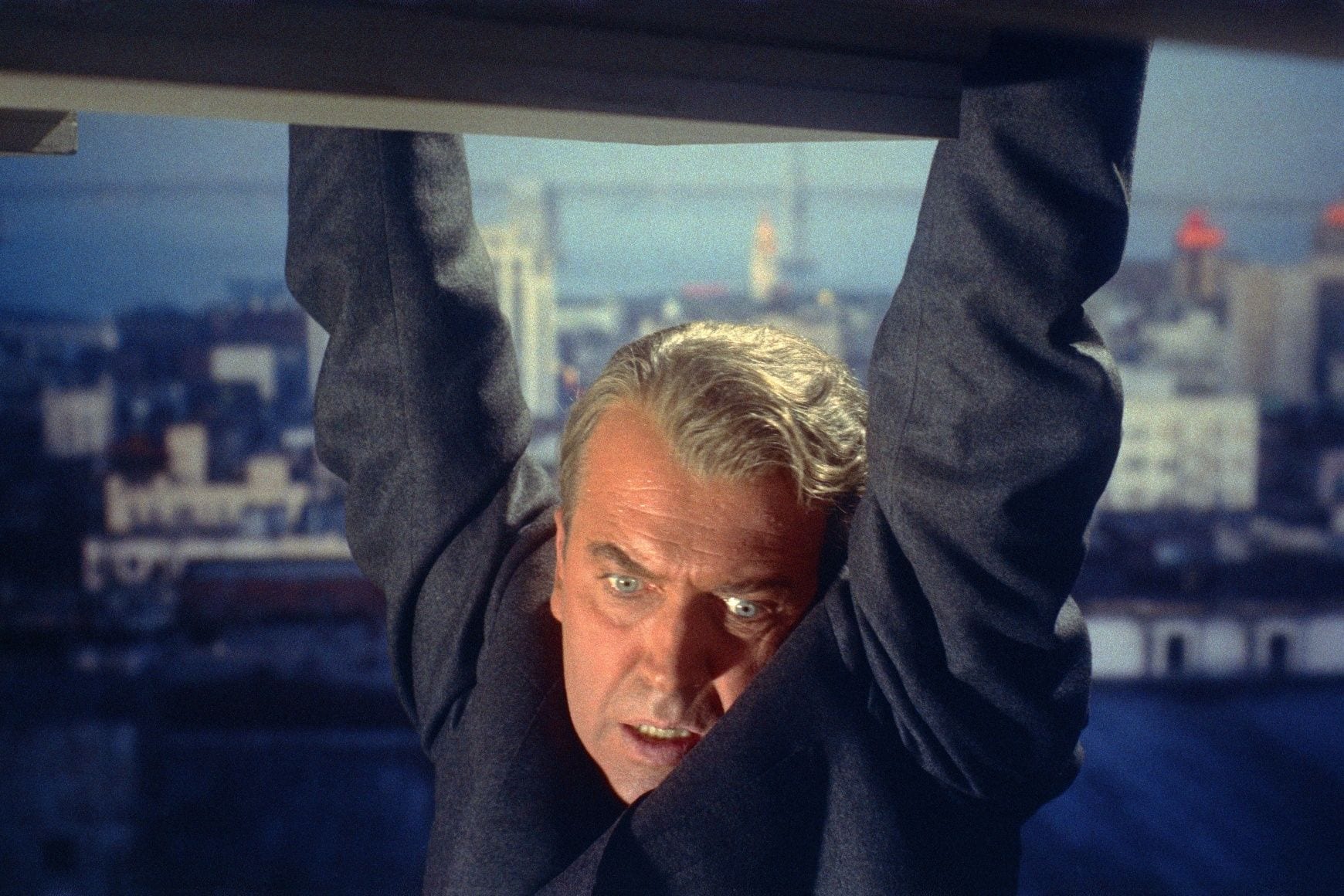Movies usually bomb because they are bad. Uber bad. Can’t be redeemed by acting, directing, or scripting terrible. In those cases, the write-off is obvious. As the medium moves on, the truly awful fall by the wayside, brought up only when discussions of the worst of the worst are warranted.
Sometimes, however, a film failure isn’t. Instead, it’s a victim of circumstances; the culture of the moment, the counterintuitive perspective of the final product, the star/director choices. And then there are those cases where a movie is literally ahead of its time, unable to be enjoyed in its own temporal moment but, once removed, is revitalized and reevaluated. Some may argue that this is a current phenomenon, home video and the internet allowing for such reassessment. In reality, as long as there have been film critics, there has been such scholarship.
As a result, there are dozens of former flops which are now considered “classics”, or at the very least, far better than their initial box office income and audience response would indicate. Sometimes, the failure was forced upon the property. It wasn’t what the audience anticipated at the time. At other times, the fiscal aspect undermined the artistic; a lack of dollars illogically argued a lack of merit.
In light of such situations, we present a two-part list of the 20 best examples of “Bombs to Beloved”, and we think you’ll be surprised at some of the directors represented here. Yes, even a few of the most important filmmakers of all time saw their fortunes fade under the often irrational eye of the always ready to pounce press. That these disasters remain part of the conversation of the artform argues for their timelessness. It also proves that, sometimes, a failure is just a fine gemstone waiting to be unearthed.
 Angel Wings by Zorro4 (Pixabay License / Pixabay)
Angel Wings by Zorro4 (Pixabay License / Pixabay)
20. Idiocracy [2006] / Director: Mike Judge
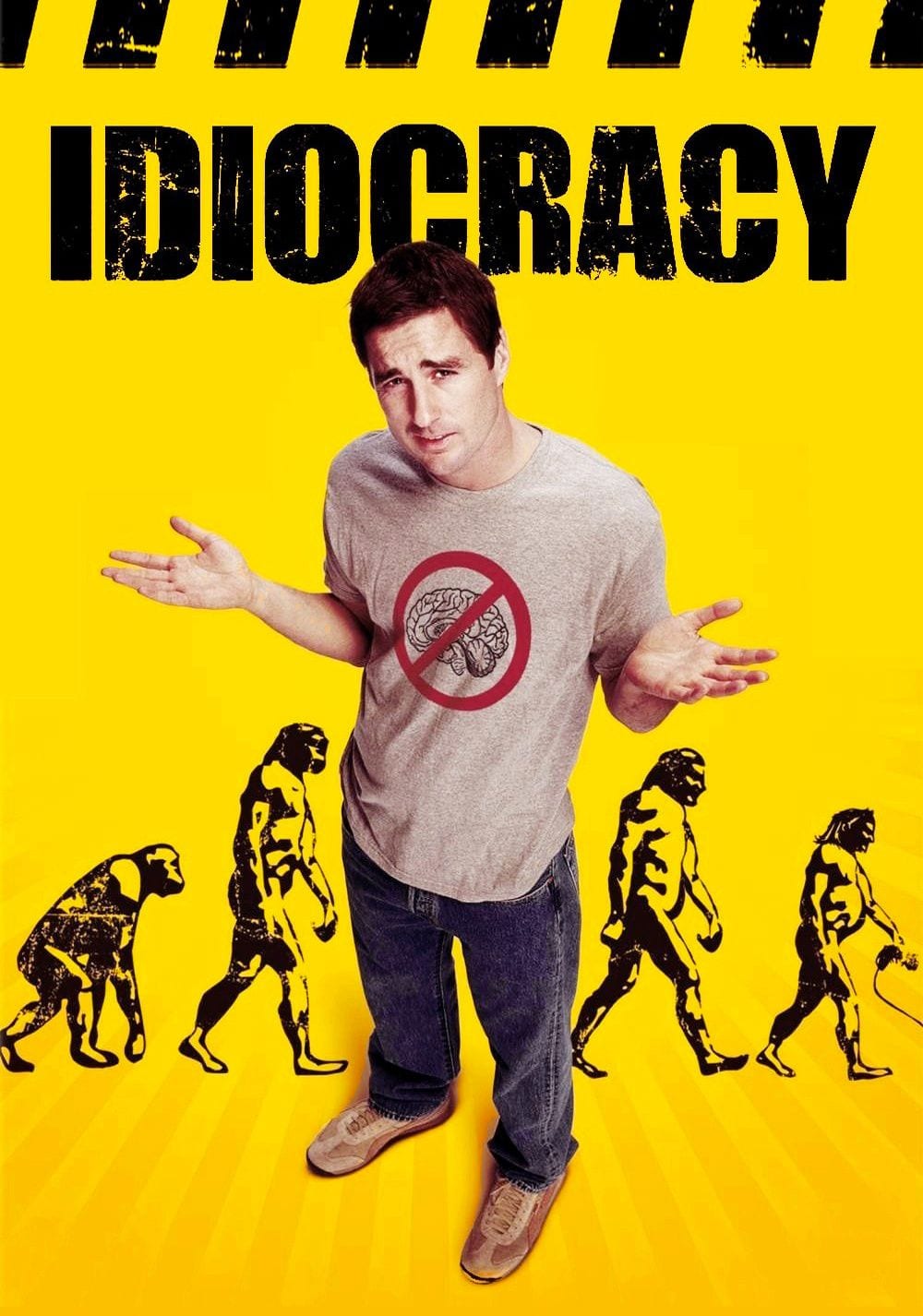
Fox hated this film. Hated it. Wanna know how much Fox hated it? It only made Idiocracy available in seven cities when it decided to live up to its contractual obligation to release it. Then, without any press push, it went “wide” to a total of 130 theaters. By example, Interstellar went out to over 3,500 outlets this past weekend. The result for Idiocracy was a mere $495,303 in worldwide box office receipts. Now, as part of the cultural conversation, it is frequently referenced as one of the great forward thinking satires of all time. It sure has gone from spoof to truth, hasn’t it?
19. Speed Racer [2008] / Director: The Wachowskis
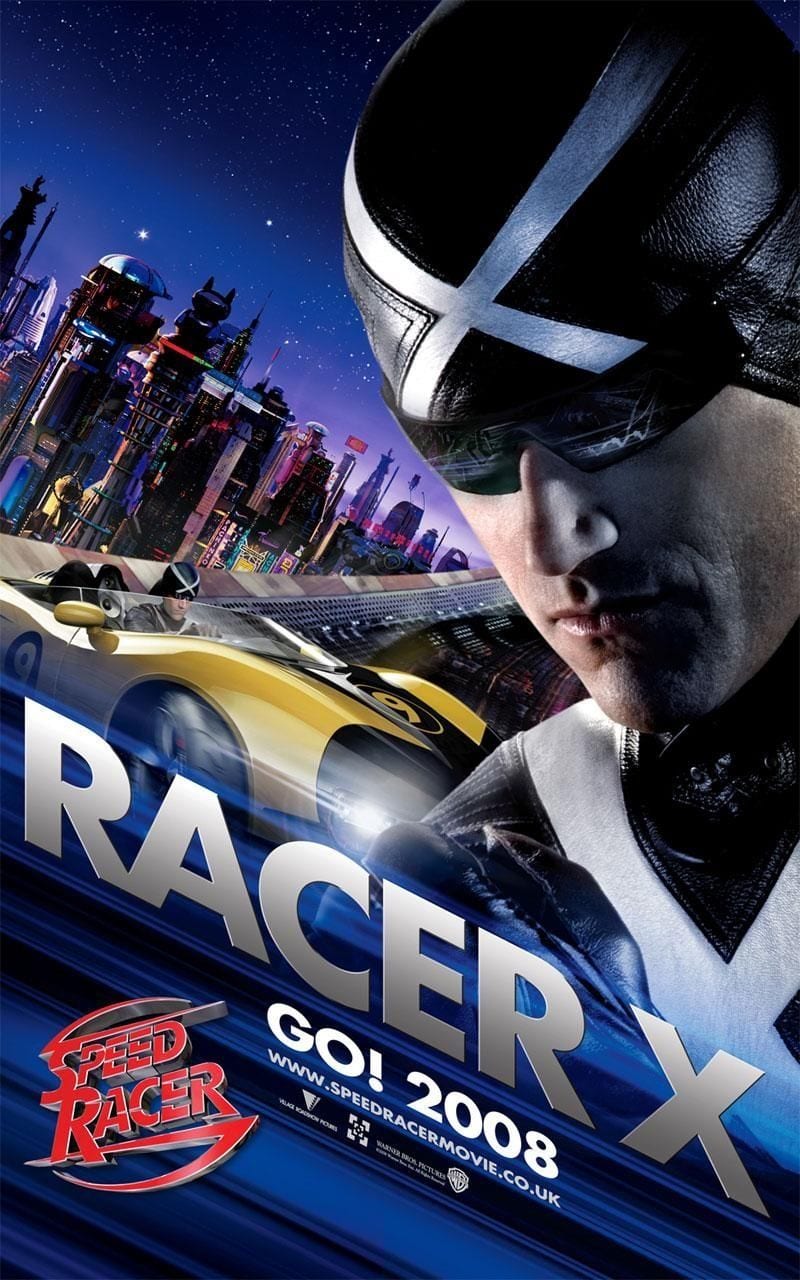
The Wachowskis had a lot of commercial credit to use up once The Matrix movies were finished, and when they announced their desire to take on the famed Japanese cartoon series from the 1960s, fanboys practically wet themselves in anticipation. When the duo finally released the $120 million spectacle, critics were less than kind. Many considered it one of the worst movies of 2008, arguing that Larry/Lana and Andy completely missed the boat on what made the original so special. Now, in light of the amazing CG and F/X work contained within, as well as the overall eye candy entertainment value, the film has gained a devoted cult following.
18. Sorcerer [1977] / Director: William Friedkin
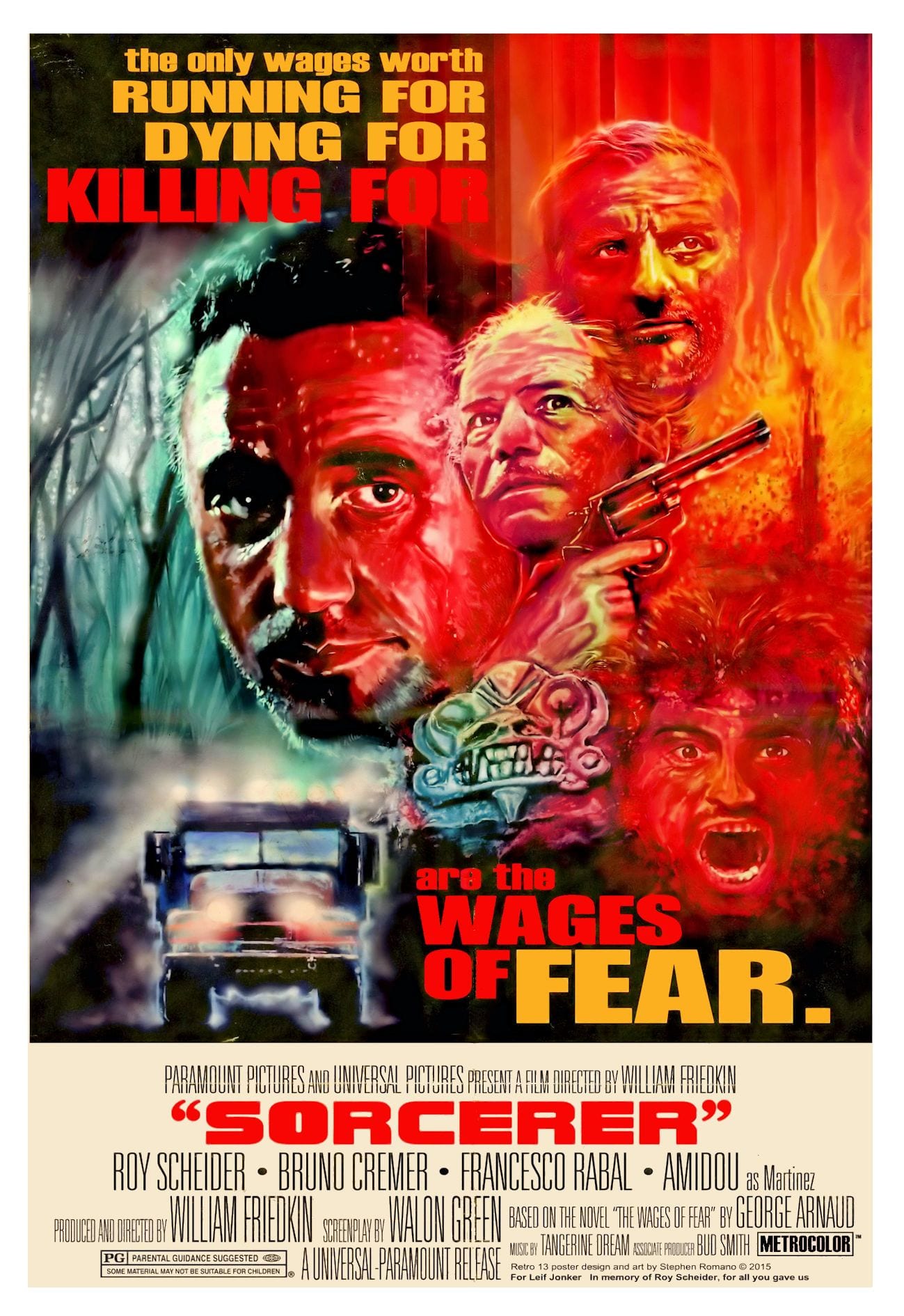
By 1977, William Friedkin was considered one of the giants in Hollywood. His 1971 effort The French Connection earned the then 36-year-old an Oscar for Best Director, and its follow-up, the brilliant horror outing The Exorcist was one of the biggest films of the decade.
Then came the backlash, and with it, the dismissal of his pseudo-adaptation of The Wages of Fear. While Friedkin has always denied he was trying to remake Henri-Georges Clouzot’s adaptation of Georges Arnaud’s 1950 French novel, Le Salaire de la peur, his “existential thriller” only earned $9 million of its $22 million budget. Today, it’s considered another gem in Friedkin’s fascinating oeuvre.
17. Heaven’s Gate [1980] / Director: Michael Cimino
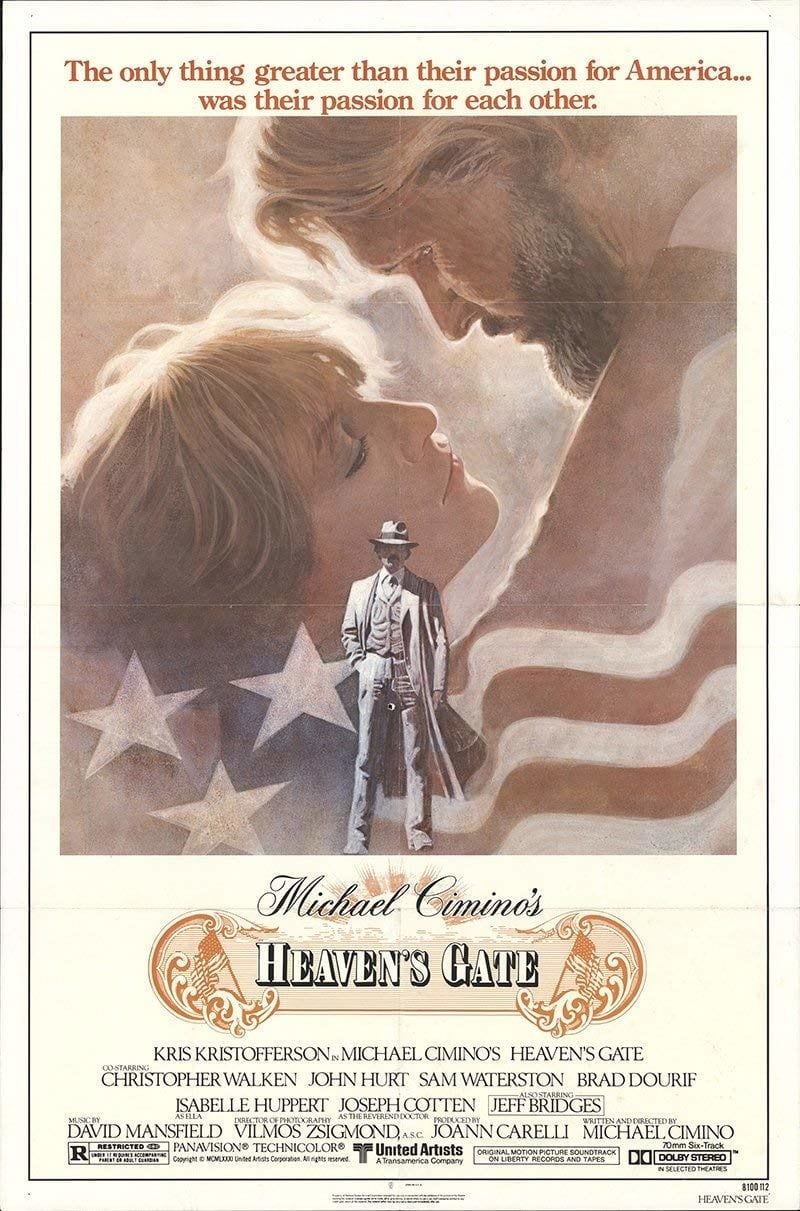
Talk about disasters. When all was said and done, Oscar winner Michael Cimino’s revisionist Western was considered one of the biggest financial failures in the history of cinema. The original budget of $11 million exploded, ending up somewhere in the low $30s, while the production itself went weeks over schedule. United Artists and its suits went all in, and paid the price.The overlong epic was a dismal failure, considered to this day to be one of the worst movies ever made. And then a funny thing happened: Criterion got on board with a full restoration and now, cinephiles have changed their tune, praising Cimino’s ambition and audacity.
16. Popeye [1980] / Director: Robert Altman
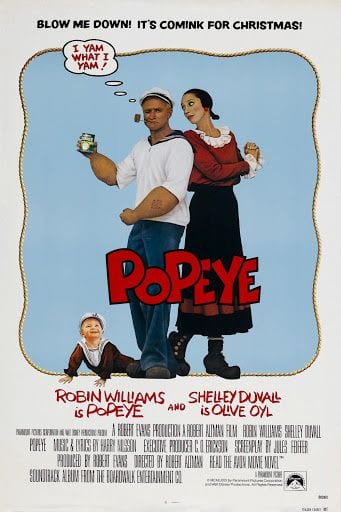
So, you want to adapt a favorite cartoon character into a live action family entertainment. Who do you pick to pilot this project? Steven Spielberg? Robert Zemekis? How about the king of post-modern experimentalism, Robert Altman? No? Well, that’s who Paramount picked, and the results were mixed, at best. The filmmaker demanded that an entire village be built on the coast of Malta, only to have a severe storm destroy most of it. The suits, angry that they failed to land the rights to Annie, wanted it to be a musical. Harry Nilsson was brought in to write the songs. It took a critical drubbing at the time and was considered a blemish on Altman’s reputation. Today, it’s beloved.
15. The Rocky Horror Picture Show [1975] / Director: Jim Sharman
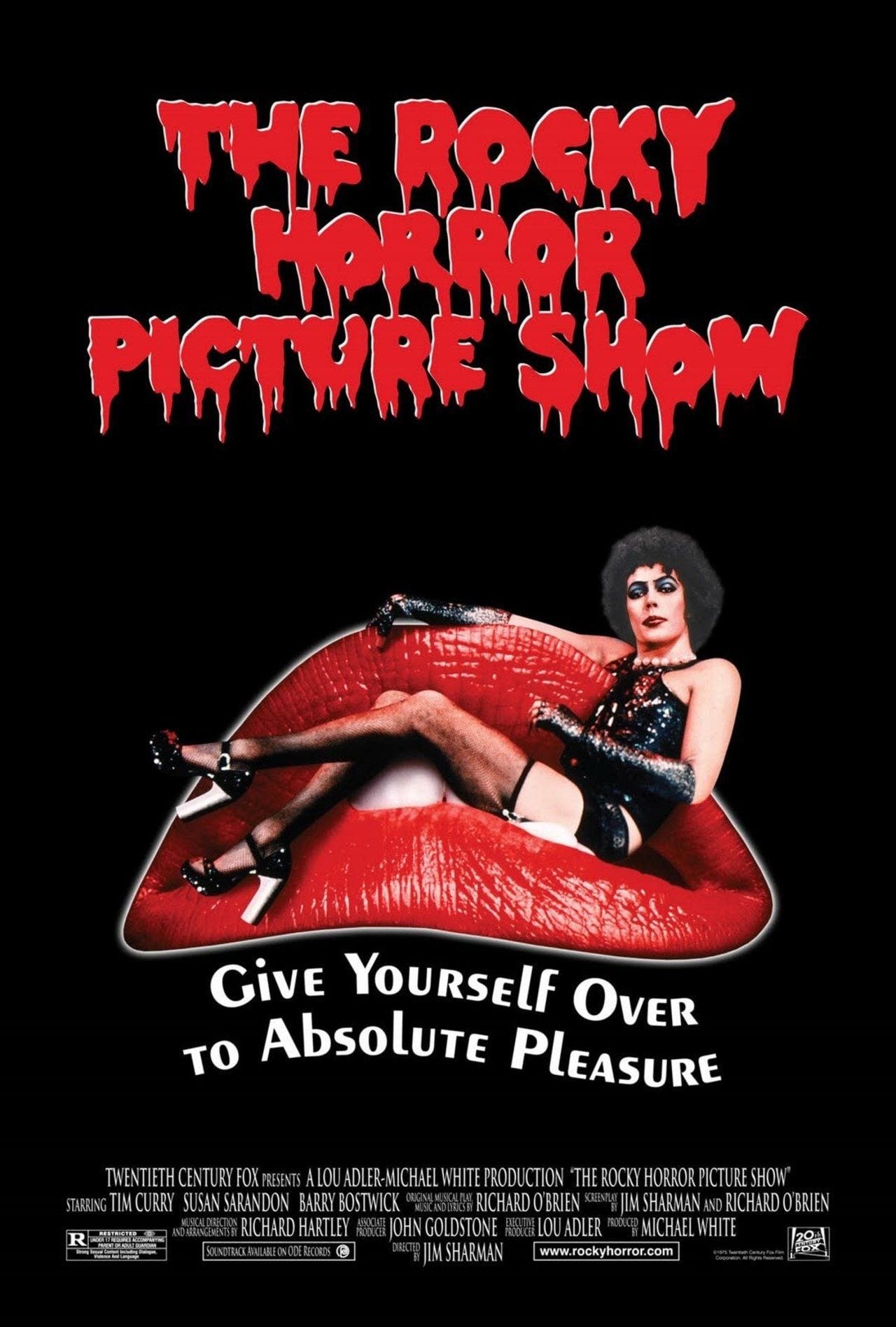
Thank God for the Midnight Movie. When this film adaptation of the legendary stage play was released to theaters in 1975, it was immediately dismissed as a waste of time. It was pulled from distribution.Then Fox executive Tim Deegan got the bright idea of making it into one of those must-see watercooler titles playing at the witching hour around the country. Almost immediately, The Rocky Horror Picture Show became a Midnight Movie staple, where it’s been for almost 40 years. While box office estimates are hard to tally, it’s said that the $1.8 million movie has since earned nearly $139 million in the US alone. Hopefully, Deegan got a raise.
14. The Adventures of Baron Munchausen [1988] / Director: Terry Gilliam
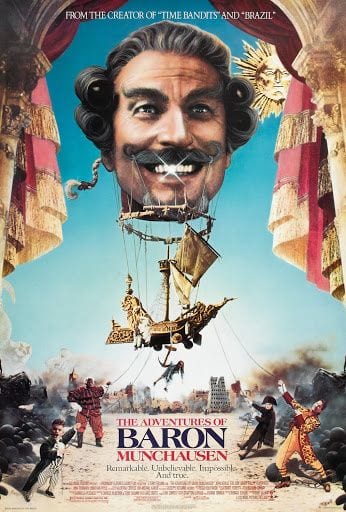
Monty Python expat Terry Gilliam had long wanted to make a movie of the famed German character, and with the success of Brazil, he saw his chance. As (un)luck would have it, however, everything that he tried in regards to the project became a problem. By the time he was finished, he had gone way over budget and schedule. Still, the end result was a critical smash. Commercially, however, Gilliam’s flight of fancy failed to connect with audiences. A massive bomb, the fallout saw the filmmaker take on The Fisher King to prove he could make a movie on time and within specific fiscal restraints. Still, to this day, Munchausen is considered Gilliam’s (brilliant) folly.
13. Willy Wonka and the Chocolate Factory [1971] / Director: Mel Stuart
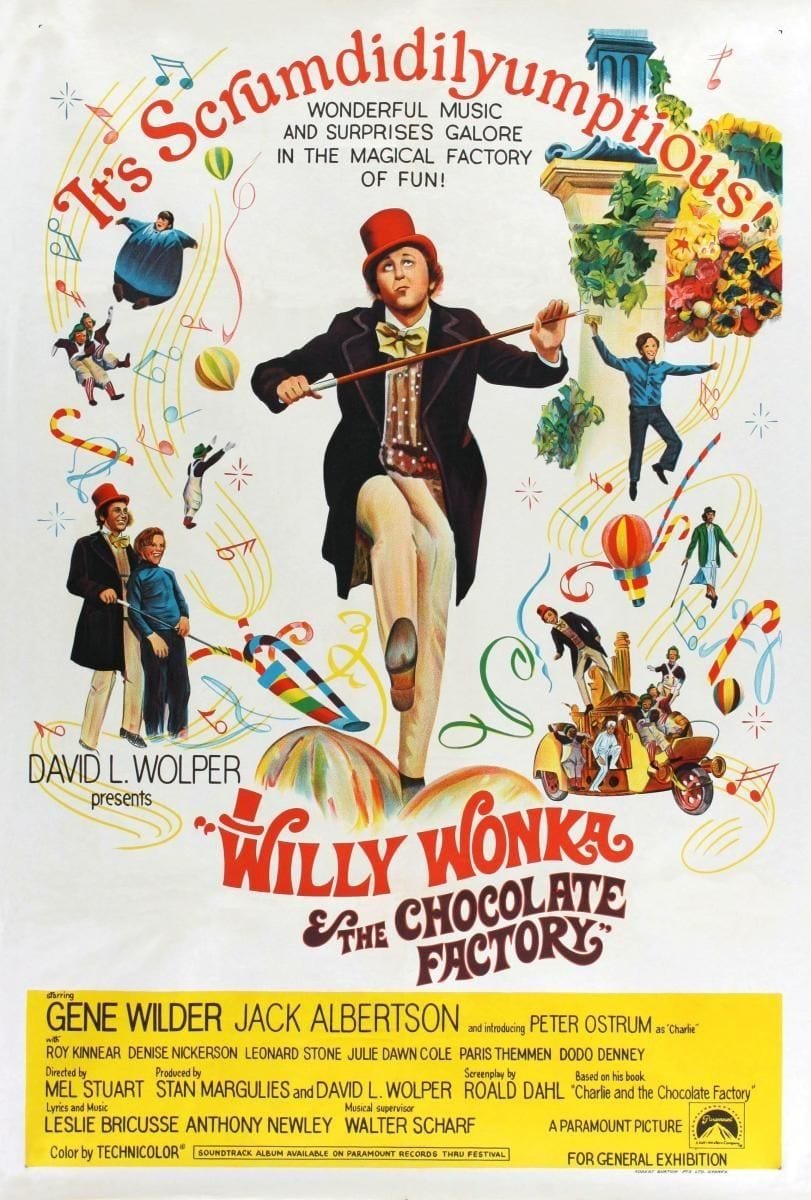
Now this is just surreal. After Mel Stuart’s ten-year-old daughter introduced her director dad to the book, he got producer David L. Wolper to back an adaptation. He, in turn, went to Quaker Oats, which was looking to break into the candy bar business. Wolper got the company to buy the rights and thus one of the most bizarre bits of product placement ever to hit the silver screen was born. Author Roald Dahl was brought in to write the script, but he was unhappy with the way his ideas were being presented. He also disliked the choice of Gene Wilder as Willie Wonka. Going on to make just $1 million over its $3 million budget, today it’s one of the most beloved children’s film of all time.
12. Fight Club [1999] / Director: David Fincher
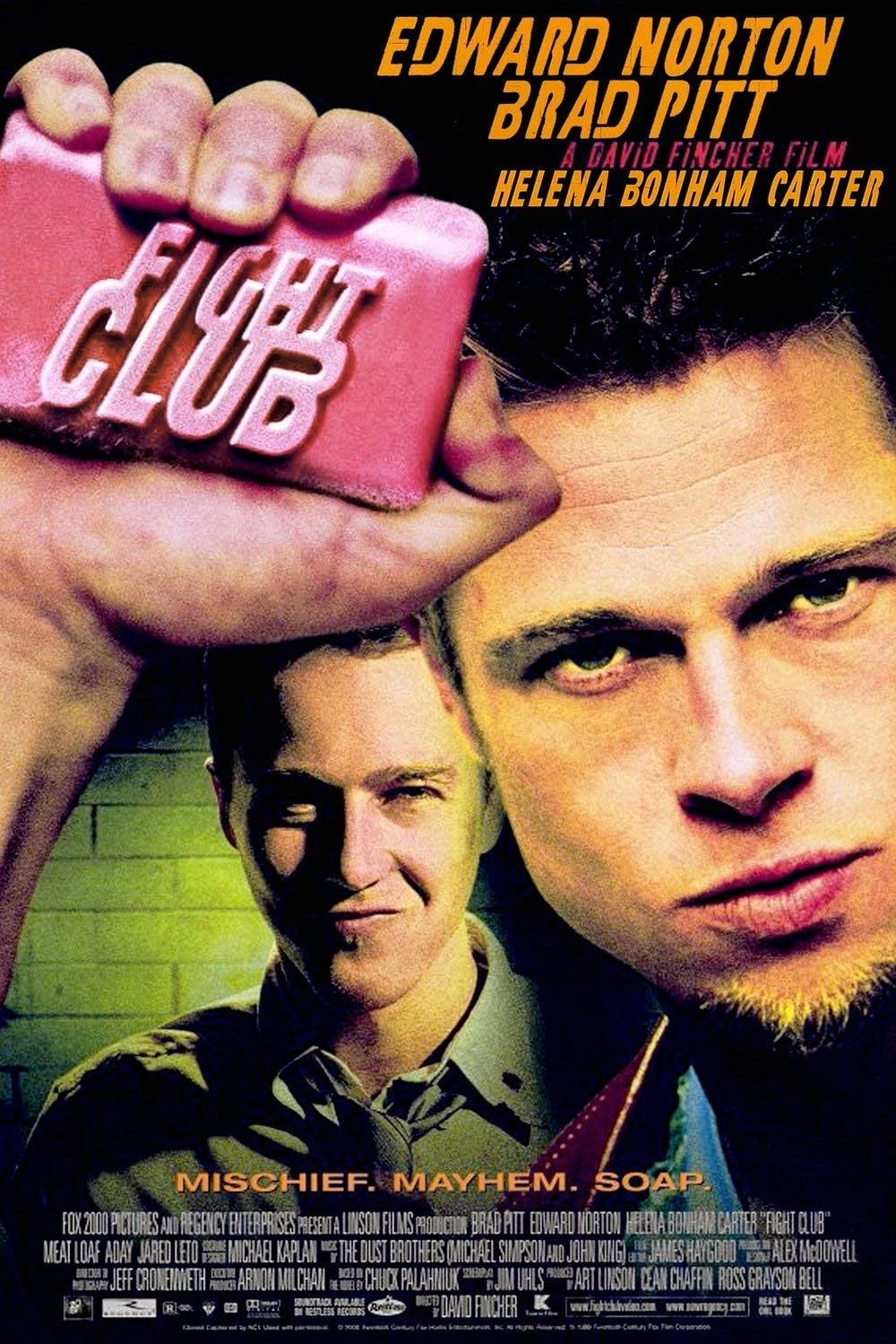
Fox was never 100 percent happy with David Fincher adapting Chuck Palahniuk’s novel. He was one of four names it was considering. When Fox saw the final result, it immediately restructured its ad campaign to minimize the perceived losses it was about to experience. In fact, it almost dumped the movie into the arthouse circuit, believing that not even Brad Pitt could attract an audience. Critics didn’t help, with just as many loving it as outright loathing it. Of its $63 million budget, it only recouped $37 million domestically (the worldwide total pushed it into slight profitability). In 1999 it was considered a massive disappointment. Now, it’s often called a masterpiece.
11. The Shawshank Redemption [1994] / Director: Frank Darabont
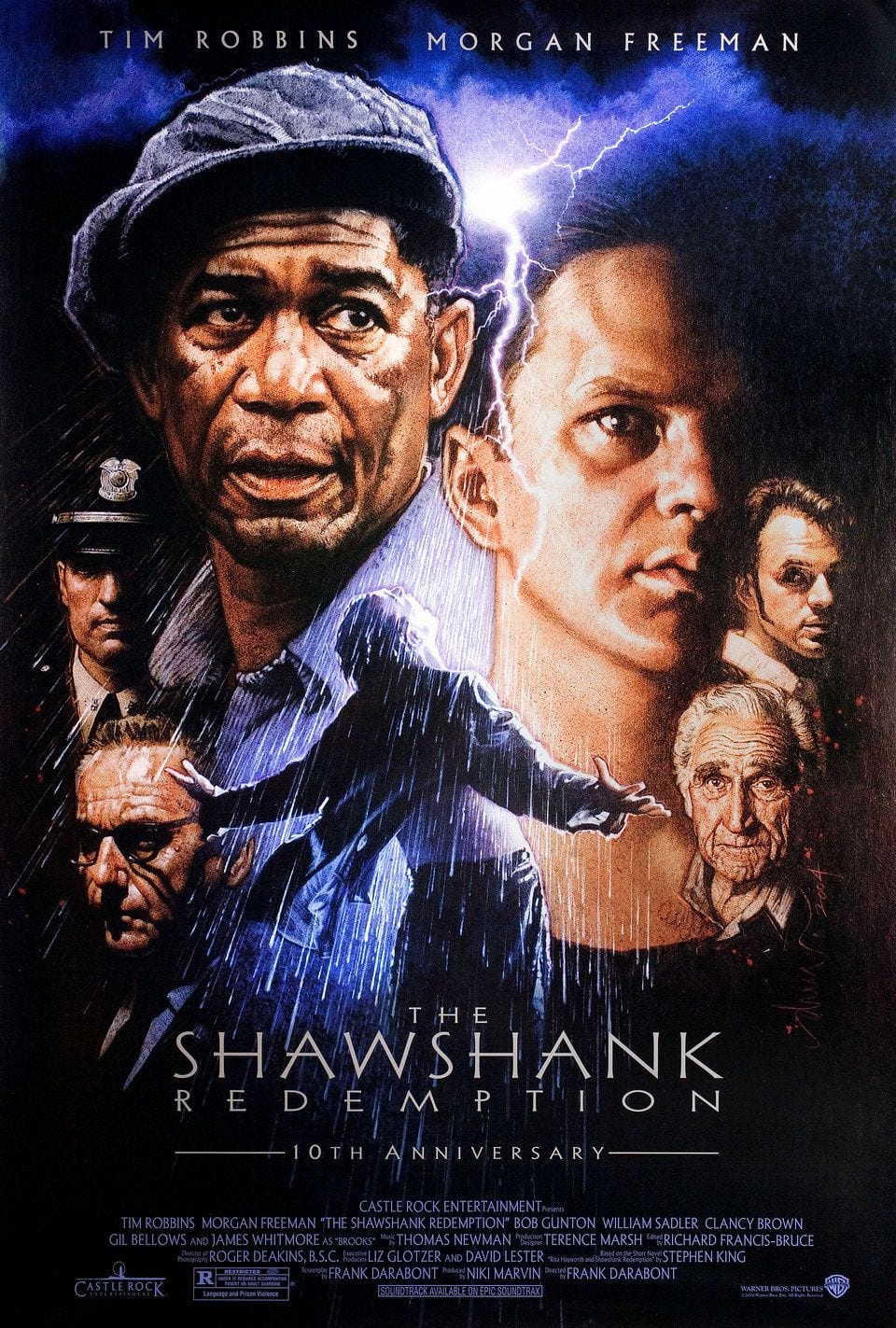
It cost $25 million to make. It grossed only $28 million on release. Writer/director Frank Darabont was, at the time, a mostly unknown TV talent. Even with a Stephen King pedigree, the picture appeared doomed. After all, who would want to watch a prison drama set in the 1940s, especially one starring Tim Robbins and Morgan Freeman?
Well, the answer was in the Internet, which turned The Shawshank Redemption from an afterthought into one of the most popular and praised movies of the mid-’90s. As a matter of fact, on the Internet Movie Database (IMDb), it ranks near the top of its 250 greatest films of all time list.
With the last 10 choices, we are talking about bombs. Motion picture bombs. No, not those big (or small) budgeted behemoths that stumble into the cineplex, announce their mediocrity, and then wander out with little to show for it except an IMDb listing and a lot of negative social media screeds. In this case, we aren’t concentrating on films that flopped because of their lack of creativity or invention.
No, with this overview, we are concentrating on films that failed in spite of their final evaluations. Put another way, we are going back over the history of cinema and staring in wide-eyed disbelief at some of the titles that, today, we adore, but years ago were marginalized and miscalculated. Yes, a few of them made money (if you consider a million or so over budget a “gold mine”), but for the most part, they strutted and fretted their hour upon the big screen stage, only to really gain respect and recognition much later on.
For the next ten selections, the names are far more recognizable, arguing that, for the most part, a classic cannot be defined upon initial release. There has to be consensus, a chance for reevaluation, and perhaps most importantly, the passage of time.
Indeed, just look at a list of the Best Picture Oscar winners for the last 40 years and pick out the projects that still deserve said accolade. We think you’ll be surprised, but not more surprised than the makers of the ten movies that end our list. The names here are etched in the annals of the medium’s mighty history.
10. Office Space [1999] / Director: Mike Judge
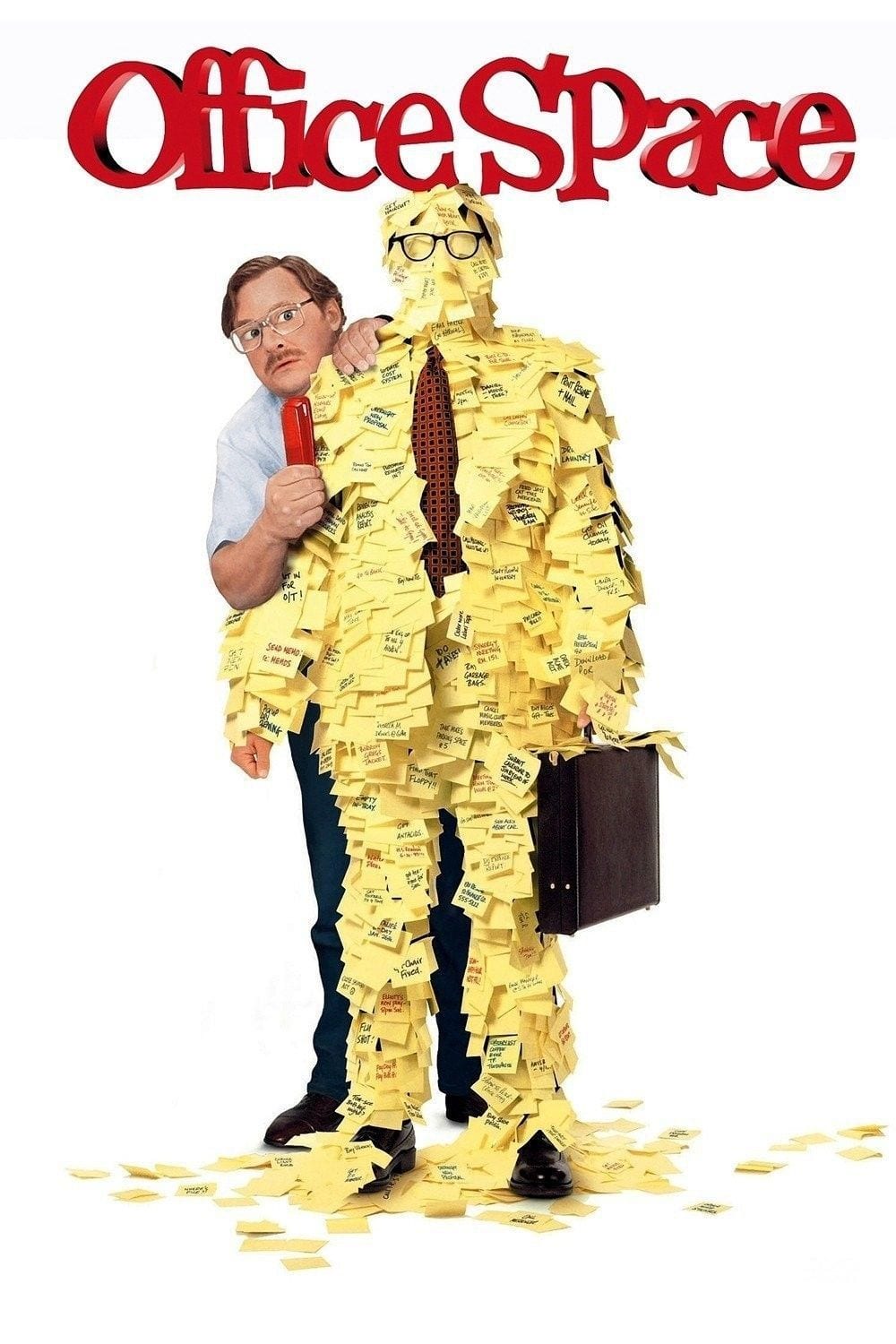
It’s Mike Judge again, this time riding the wave of success that came with Beavis and Butthead. Going back to a series of short animated films he made, this dead-on satire of stifling corporate speak and cramped cubicle conformity more or less bombed at the box office. Then it was released on home video, and soon, a big fat cult hit was born. Indeed, without the ability to revisit some movie in the leisure of your own living room, there are several “classic” films that would have simply vanished off the artform’s radar.
9. Peeping Tom [1960] / Director: Michael Powell
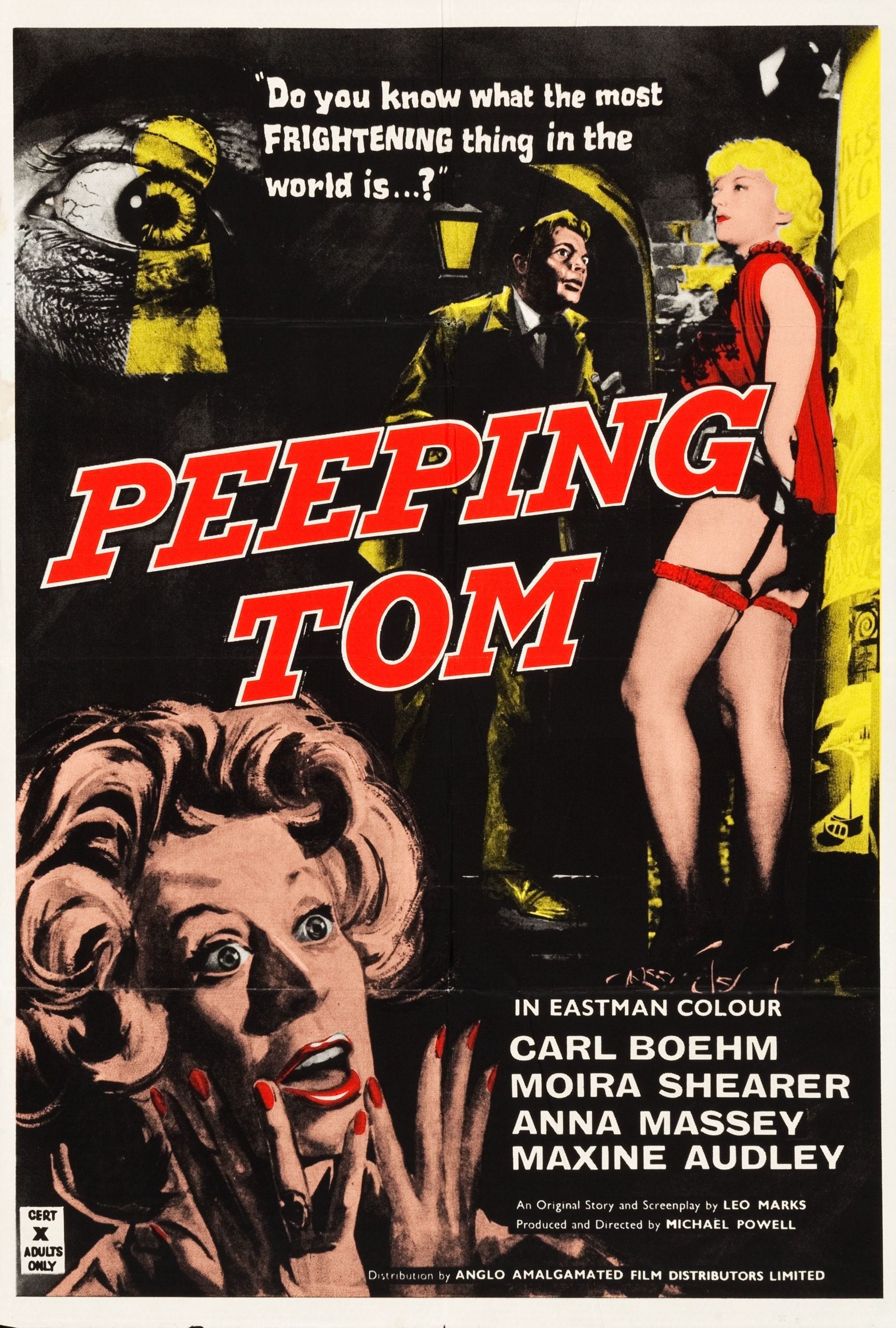
Before 1960, British filmmaker Michael Powell was considered a national treasure, with films such as Tales of Hoffman, Black Narcissus, A Matter of Life and Death, and The Red Shoes showcasing his incredible eye and stylistic flourishes. Then, like his contemporary, Alfred Hitchcock, the mild mannered director decided to make a movie about a voyeuristic serial killer. Instead of receiving accolades, like Psycho did, this amazingly cruel effort more or less destroyed Powell’s reputation and career. His fans just weren’t ready for such savagery onscreen. Today, it’s considered a creepy companion piece to the Master of Suspense’s black and white wonder; equally dark and just as effective.
8. The Wizard of Oz [1939] / Director: Victor Fleming

The producers wanted then popular moppet Shirley Temple for the lead. When her studio refused to lend her out, MGM grabbed Judy Garland and made do. A troubled shoot, original Tin Man Buddy Ebsen had to drop out when the aluminum body paint his costuming required resulted in an extended stay in the hospital. While audiences loved the final result, the film barely broke even. Then, in 1957, a TV rebroadcast of the fabled fantasy became an annual tradition, turning the mostly forgotten adaptation of Frank L. Baum’s book into one of the most beloved family musicals of all time.
7. Freaks [1932] / Director: Tod Browning
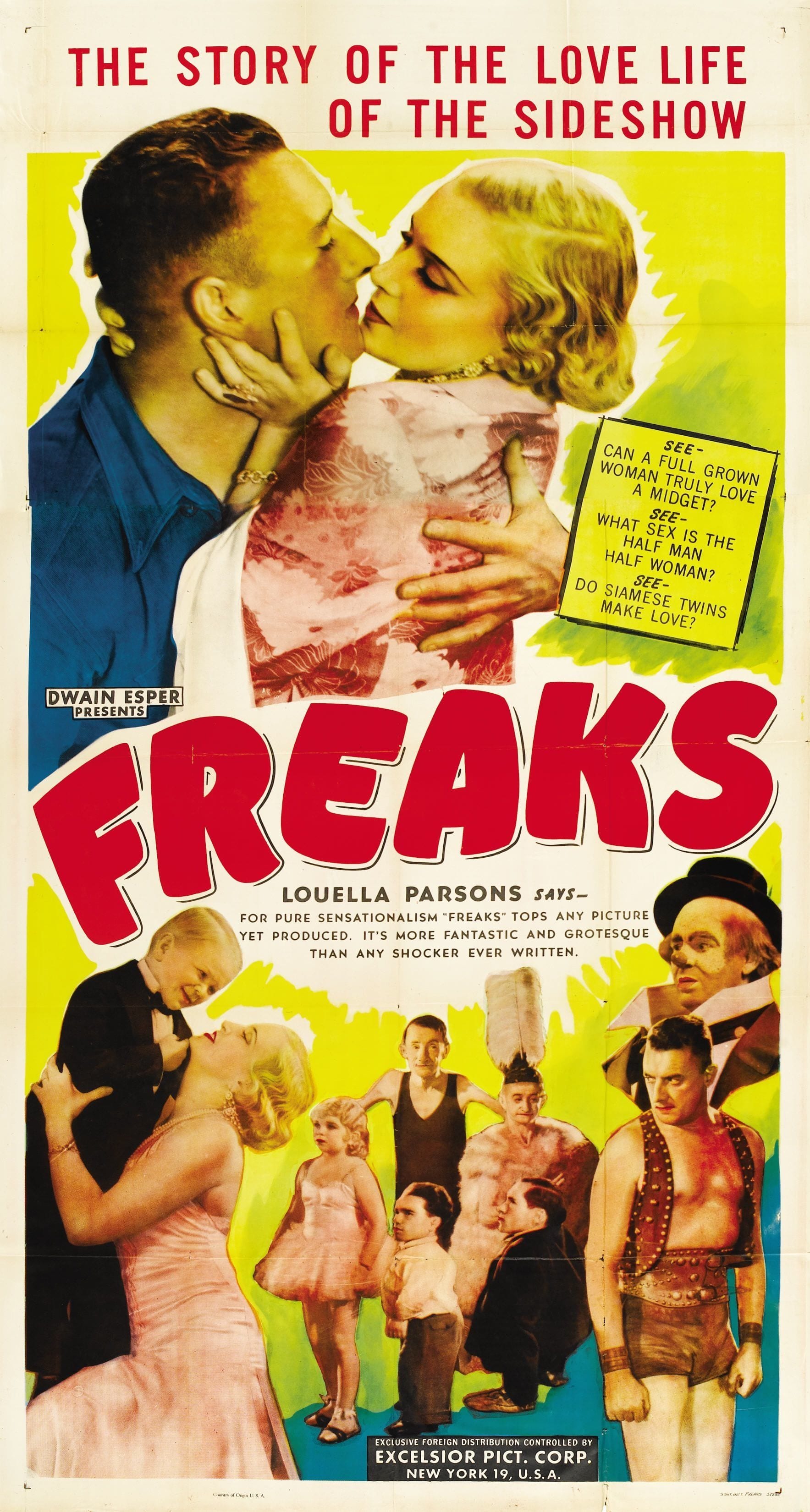
After the death of his longtime collaborator and friend, the “Man of a Thousand Faces”, Lon Chaney, silent film director Tod Browning was hired to turn the stage version of Dracula (with an unknown Bela Lugosi) into a movie. When it was a hit, he was given a chance to make another, and he chose the story of some circus freaks getting revenge on a conniving “normal” woman who takes advantage of them. As this was during the pre-Code days of Hollywood, Browning hired real people (rather than actors in makeup and prosthesis) for major roles. The public outrage was enormous, effectively destroying his career. Today, his efforts remain a solid horror staple.
6. Duck Soup [1933] / Director: Leo McCarey
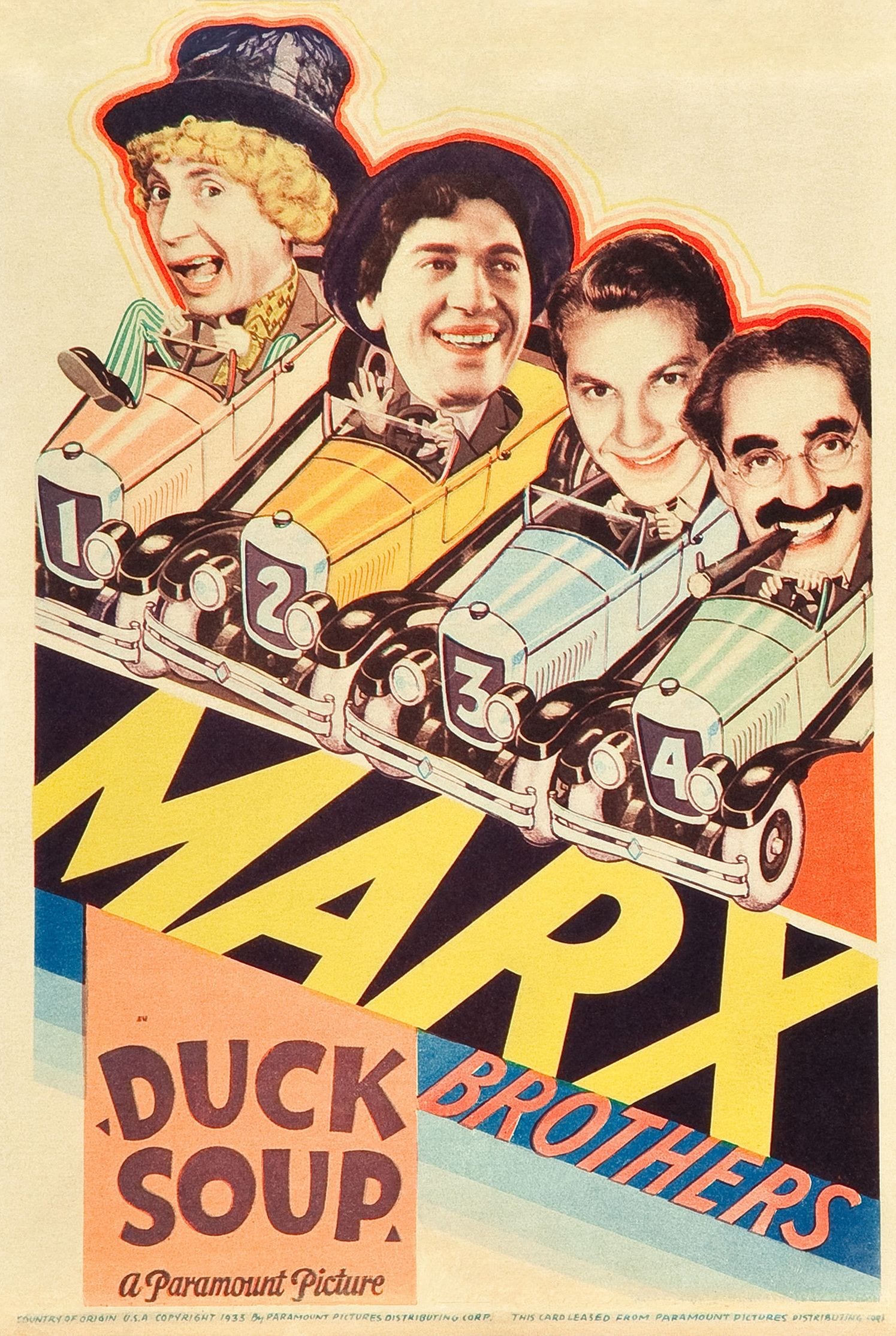
By 1933, the Marx Brothers were massive. Their string of filmed stage to screen revues, including classics like Animal Crackers, Monkey Business, and Horse Feathers had been hugely profitable for Paramount, and the studio believed the team’s latest, a biting political lampoon, would do just as well. Then the brothers became belligerent during contract negotiations and eventually jumped ship to MGM. Upon release, Duck Soup was seen by critics as beneath the boys, though the audience did turn out. With the perspective that comes with time, and sans the troubling Depression as a backdrop, the movie is now viewed as the Marx Brothers’ masterpiece, and with good reason.
5. The Iron Giant [1999] / Director: Brad Bird
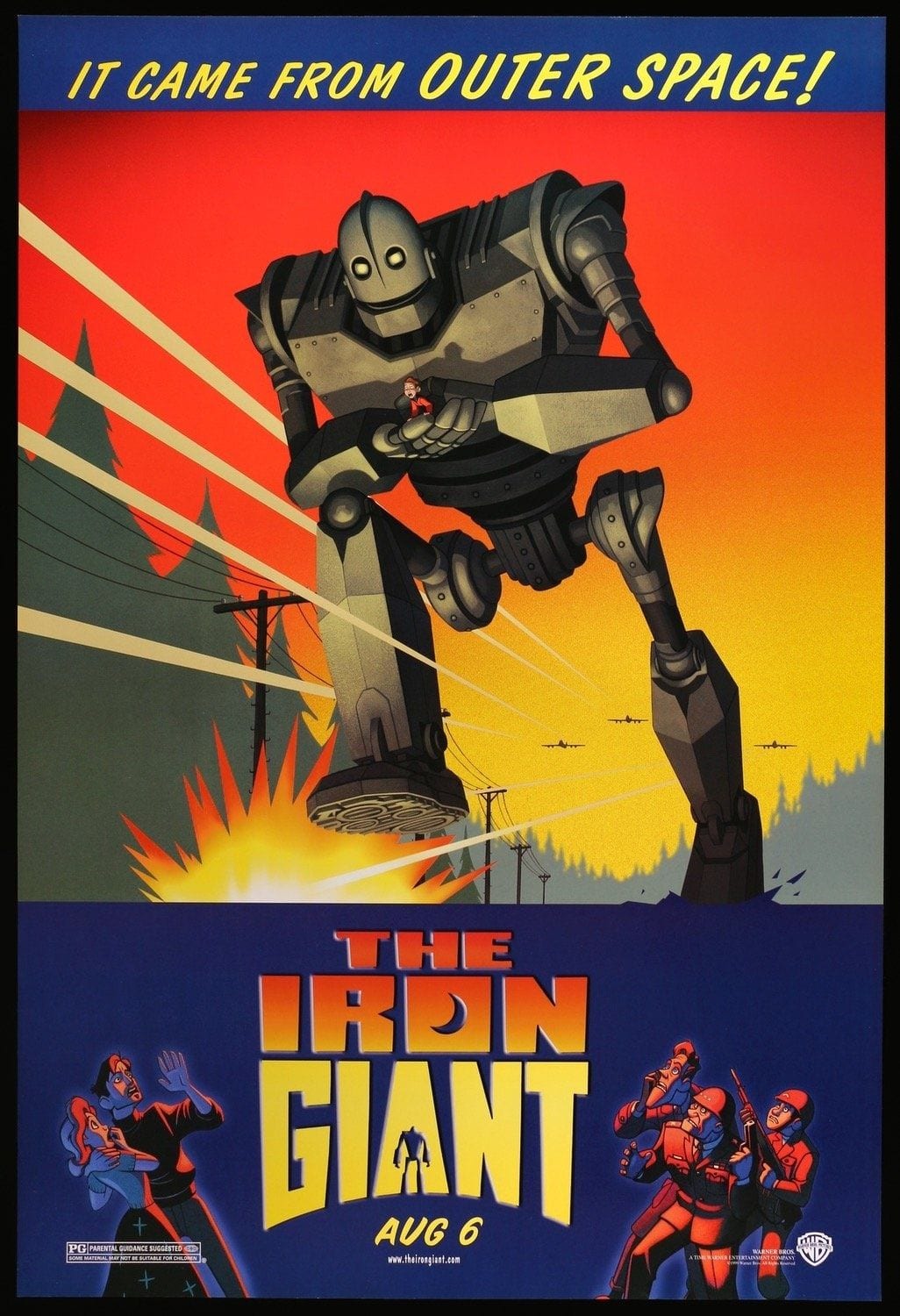
He owns two Oscars, for amazing animated titles such as The Incredibles and Ratatouille. But before Brad Bird became an Academy favorite and a live action expert (see his equally amazing work on Mission: Impossible – Ghost Protocol), he tried to turn Ted Hughes 1968 novel into a family film smash. It didn’t happen. Warner Bros. had specifically hired him for the gig, then balked when its Quest for Camelot tanked. Granted, Bird got to make the movie he wanted, but the results were a massive box office bomb. Thanks to the rejuvenating powers of home video, it finally found its audience.
4. Blade Runner [1982] / Director: Ridley Scott
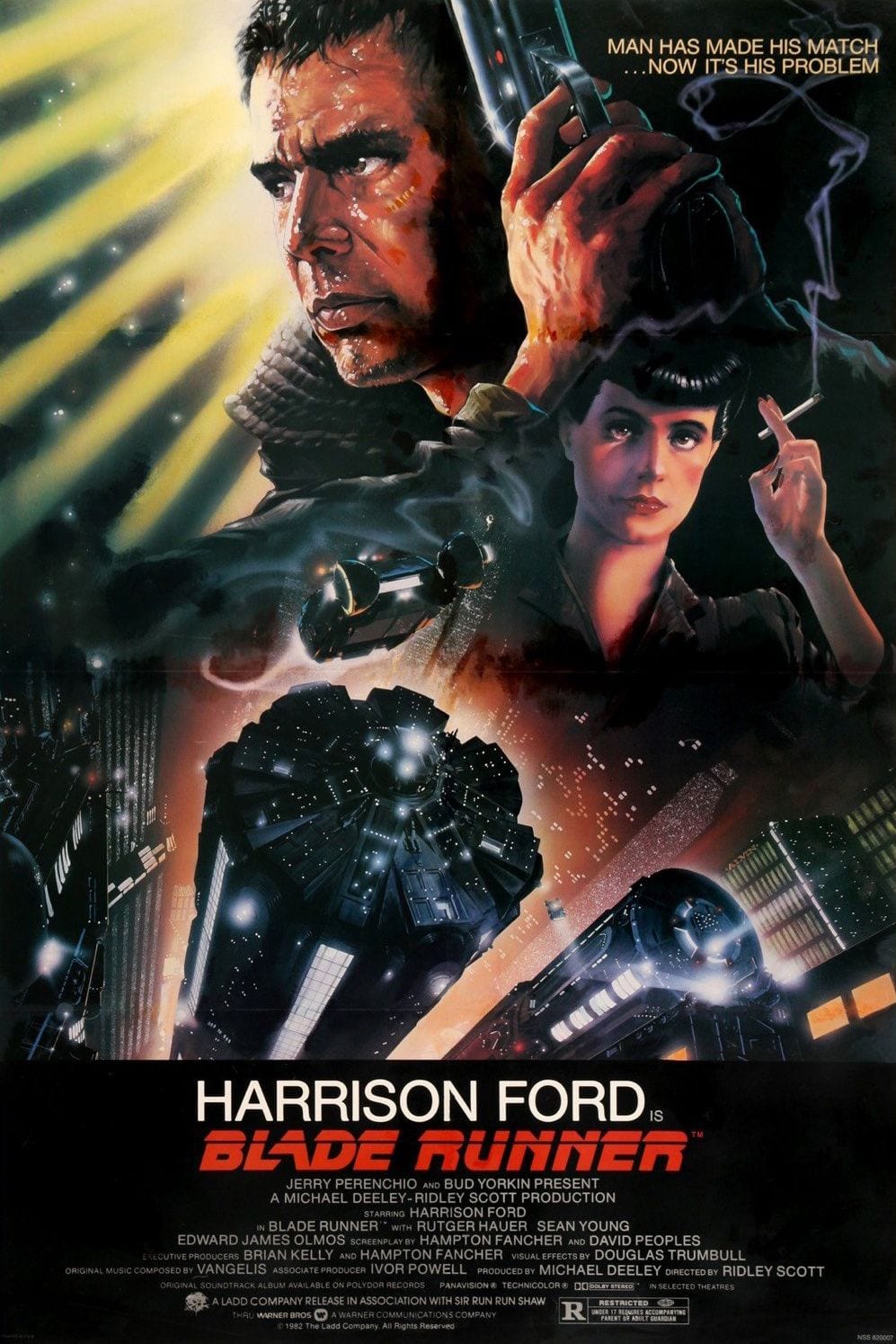
After the huge success of Alien, Ridley Scott was set to make another sci-fi property into a film — Frank Herbert’s Dune — when events conspired to keep that from happening. Taking on Philip K. Dick’s Do Androids Dream of Electric Sheep?, it looked like he had another speculative hit on his hands. He even had Han Solo, a then red hot Harrison Ford, as his lead. Then critics got a look at the final version and were less than impressed. The film flopped at the box office and, over time, Scott distanced himself from the initial version that was released. His director’s cut has now become a genre staple.
3. Citizen Kane [1941] / Director: Orson Welles
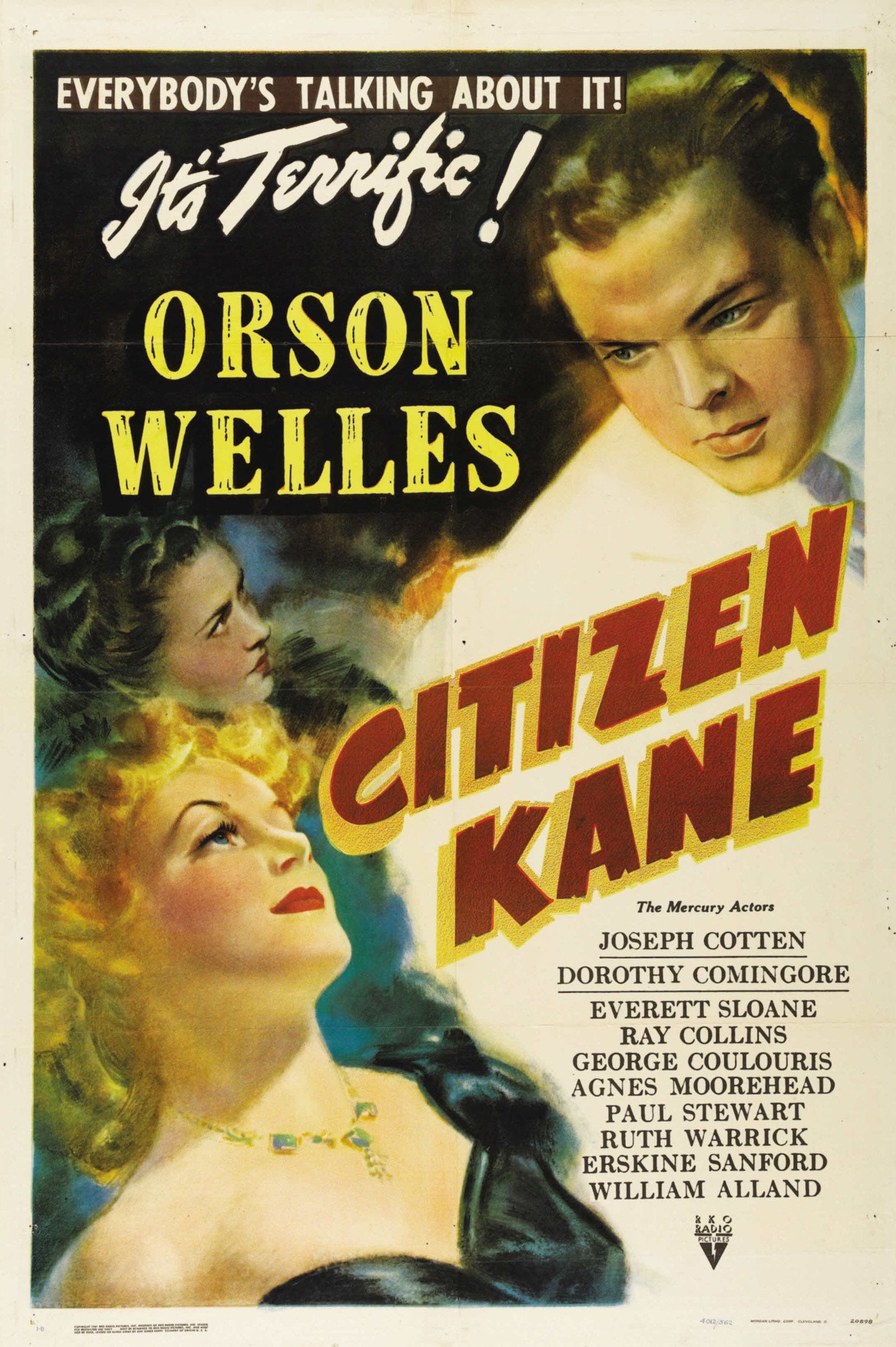
How does a brilliant masterpiece of moviemaking, an inventive work of cinema that actually reshaped the structure and style of the artform, bomb at the box office? Three simple words: William Randolph Hearst. Having been told that the character of Charles Foster Kane was based on him, the millionaire newspaper publisher decided to destroy anything associated with it, banning any advertising or mentioning of the film, while assigning his reporters the job of libeling creator Orson Welles. It worked. While the final film earned an Oscar, it wasn’t until the French rediscovered the film in 1956 that it was heralded as the greatest of all time.
2. 2001: A Space Odyssey [1968] / Director: Stanley Kubrick
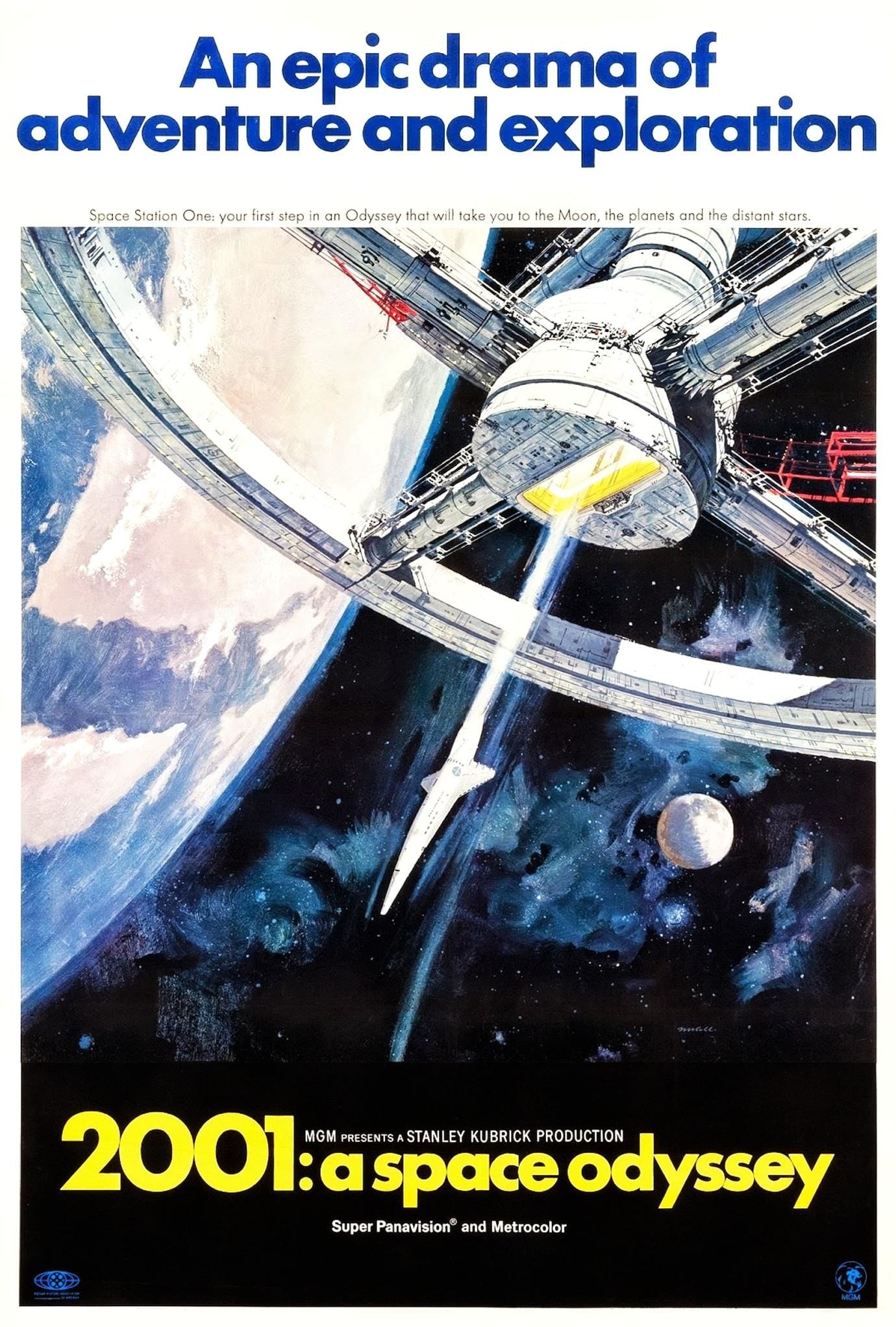
Critics didn’t get it. Audiences had a hard time with the material, as well. The counterculture, however, always looking for a mind-blowing experience (they would later turn the theatrical rerelease of Walt Disney’s experimental Fantasia into an LSD inspired freak-out), flocked to the latest from Lolita/Dr. Strangelove‘s Stanley Kubrick, eventually turning it into a sizeable cult hit. At the time, critics complained about the film’s slow pacing, its difficult to decipher plot, and most importantly, its puzzling ending. Now, it’s those very items that have turned the space case hippie happening circa 1968 into what many consider to be the definitive sci-fi epic.
1. Vertigo [1958] / Director: Alfred Hitchcock
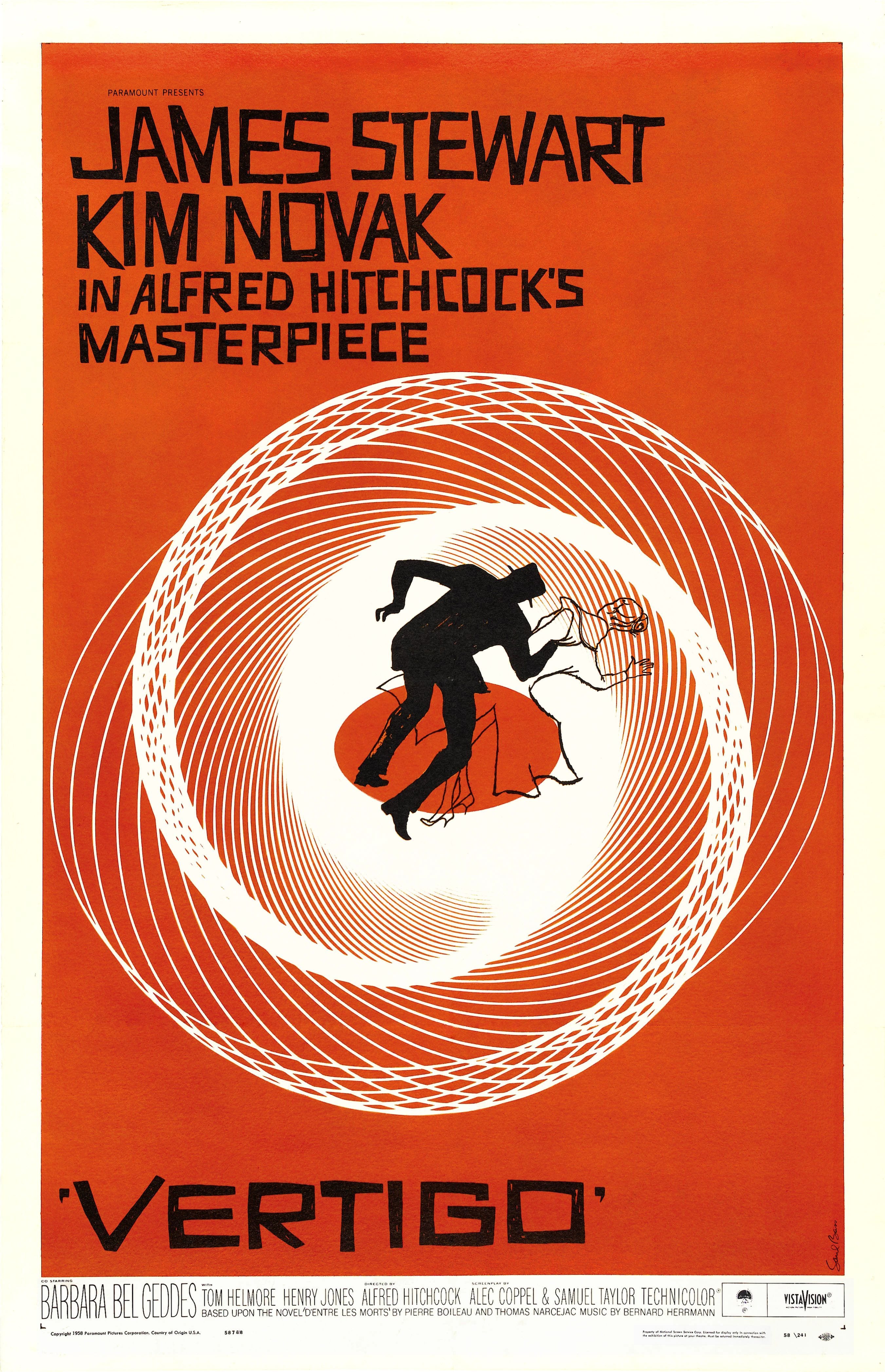
In a recent Sight and Sound poll, Vertigo replaced Citizen Kane as the greatest film of all time. It’s frequently viewed as its director’s highest achievement, and one of his many masterpieces. But when it was released, Vertigo was considered another sign of Alfred Hitchcock slipping. Since the beginning of the ’50s, his films were viewed as less and less successful. As part of a process that would leave to a creative renaissance, the romantic thriller was considered too long and confusing. It barely made back its under $3 million budget. Today, it stands as the kind of aesthetic groundbreaker that few filmmakers can ever claim.
* * *
This article originally published on 11 November 2014.

